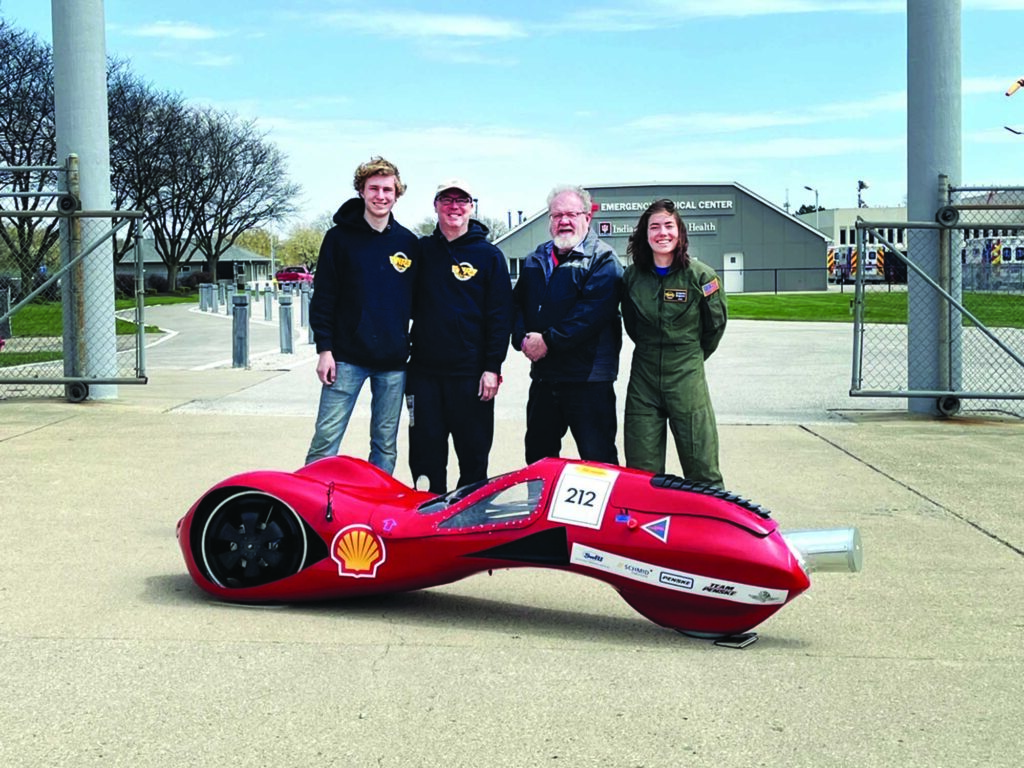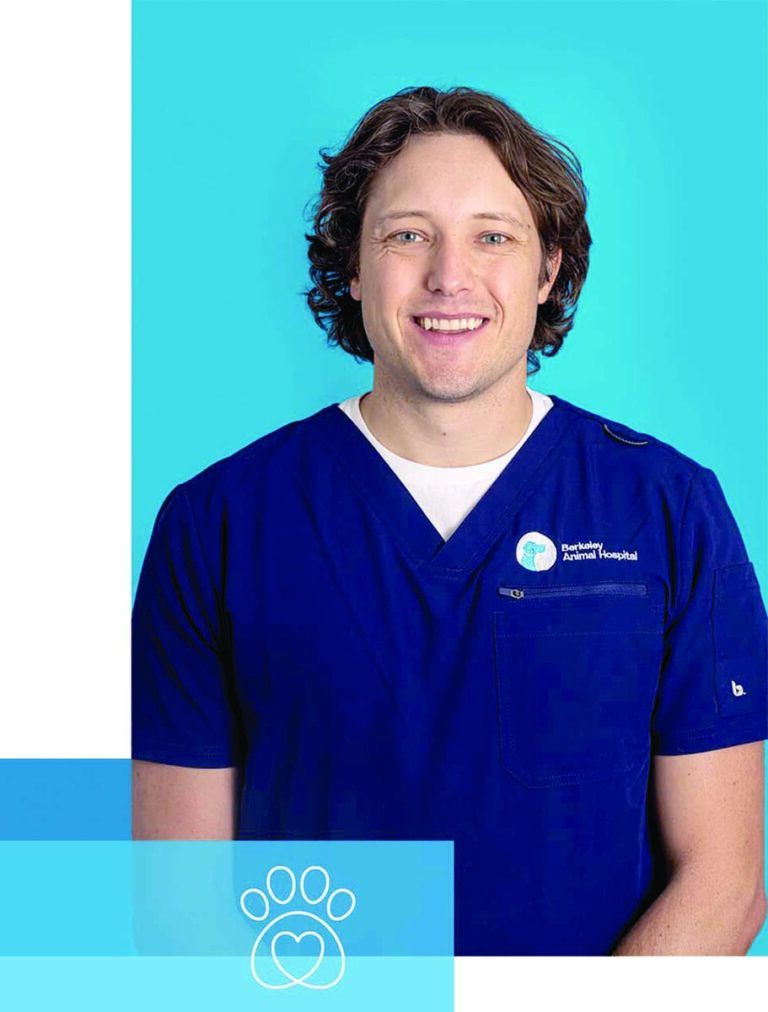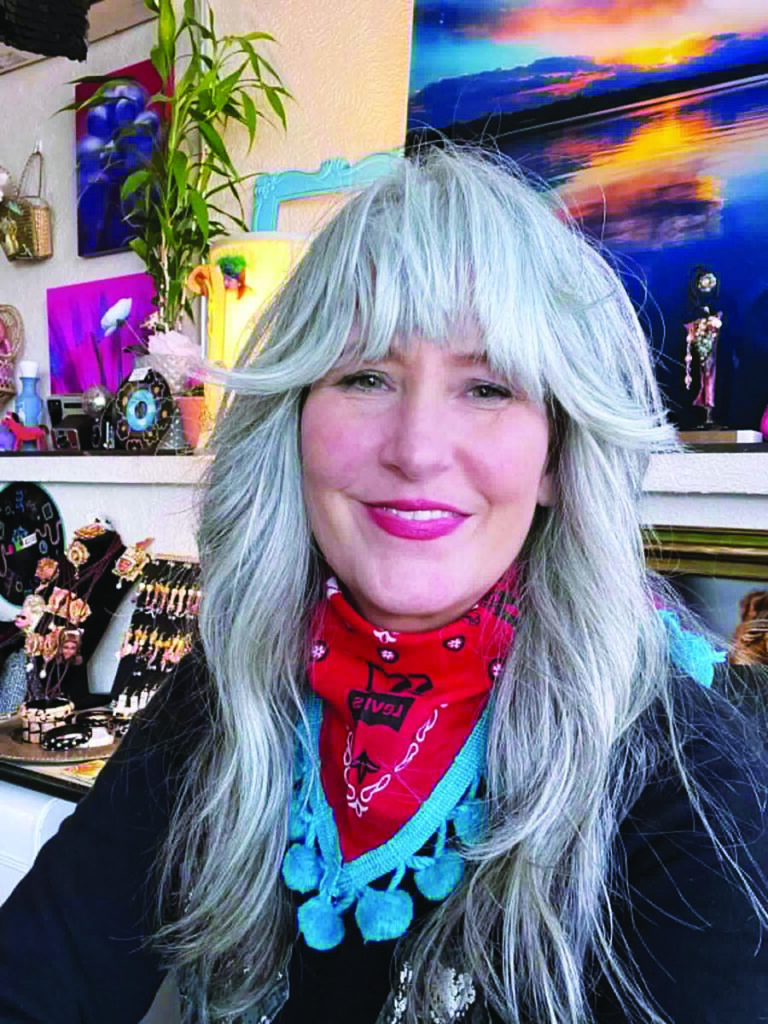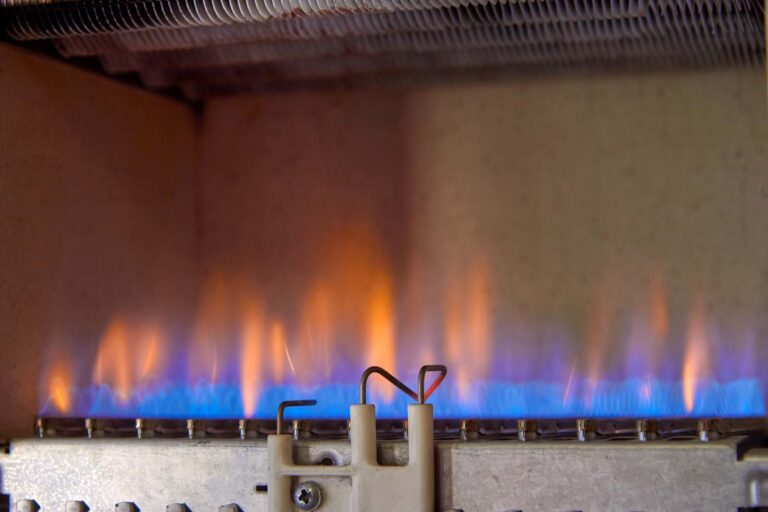Charles “Chuck” Sprague isn’t a teacher remembered for doling out worksheet assignments.
During its December 9 meeting, several community members urged the Wheat Ridge City Council to continue its support of the Wheat Ridge High School’s STEM program, started by Sprague, after his retirement. Former students with degrees from high powered universities, parents who drove their children from neighboring cities so they could participate in the STEM program and even a grandparent all spoke at the meeting, advocating for the program to continue in a similar style to Sprague’s blueprint for the program.
The program started under Griff Worth’s leadership, Wheat Ridge High’s principal from 2007 to 2017. Worth hired Sprague during his tenure at the school. As many long-term educators experience, Sprague craved a new challenge to combat burnout. Sprague created the STEM program in 2014, despite many believing the goals for the program were too advanced for high school students, Worth said.
Unlike other high school programs, Sprague didn’t base the curriculum around a textbook or standardized lectures. It operates around solving problems—problems the students solve themselves. With the help of industry professionals and experts from Colorado School of Mines and UC Denver, the program goes beyond a typical career and technical education program.
“When they had a problem Chuck didn’t solve the problem; he would guide them,” Worth said. “But they had to solve the problem on their own, with his support and facilitation skills. It was unique in that way.”
Students construct Shell Eco Marathon cars, NASA rovers, BattleBots and even once constructed a sculpture for a local hospital. Not only do students dream up ideas for projects, they elicit help from industry professionals and fund raise. The school’s budget doesn’t fund the projects, so students petition for funds from organizations like the National Renewable Energy Lab and other local service organizations including the Optimist Club, Kiwanis, Rotary Club and Odd Fellows. CEOs have marveled at the students’ public speaking and presentational skills, according to Worth.
Sprague encourages the soft skills that may come less easily for engineering-minded students, he said.
“The engineering is easy,” Sprague said. “Talking in front of people is not.”
Worth believes the education system misses some lessons students could use to be successful in the workforce.
“We have a system in education that claims to teach essential skills, which are things like collaboration, teamwork, self-responsibility, initiative and all those other skills,” Worth said. “We don’t really teach those. Whereas this program is really centered on that kind of thinking.”
Unlike typical STEM programs that siphon off the highest academically performing students for their programs, Sprague’s program includes students who aren’t university-bound.
“This program completely turns that upside down,” Worth said. “There’s a place for everybody in this field. We’ve just got to figure out where you fit into the field.”
Members of the program include engineering-minded students on the MIT pathway, but also welcomes students who struggle in school and are entering the workforce after graduation. Students hoping to gain technical skills, like manufacturing or welding abilities, help students more interested in the academic side of the program, Worth said.
Susan Miller remembers many trips up and down I-70 driving her children to Wheat Ridge High School from their home in Genesee. For her the drive was worth it for her youngest son’s involvement with the STEM program, which led him to a competition in Huntsville, Alabama competing with the class’s human-powered Mars Rover.
Miller and other parents attending the December 9th city council meeting expressed gratitude for the program for keeping their children engaged and out of trouble, even on Saturdays. Sprague dedicates around 20 Saturdays a year helping students work on their projects, sometimes staying there into the night as they make deadlines for their projects.
Miller considers one of the greatest outcomes of the project to be that students like her son, who went on to work jobs including one at a technology company making lasers for military aircraft, were able to problem solve, without the fear of mistakes deducting points on their grade.
“I think he was inspirational,” said Miller, who served as the Jeffco board of education director from 2019 to 2023. “I think he’s one of those teachers that lets kids make mistakes and get messy, kind of like Ms. Frizzle.”
A graduate of the Colorado School of Mines with a Metallurgical Materials Engineering degree, Sprague worked in the industry first before applying to a teacher in residence program, which allowed his credit hours in the field to transfer to a teaching degree.
At the urging of parents on the youth soccer team he coached, Sprague sought out a teaching job in the high school he, his mother, grandpa and brother all attended.
Filling a last-minute vacancy, Wheat Ridge High School hired Sprague as a math teacher 25 years ago.
Some teachers might be nervous to involve high school students in ambitious projects involving machinery, but Sprague was more curious during the first year of the STEM program when students came to him hoping to build a car. Sprague admitted to the students he didn’t know how to make a car. He did know how to impart the engineering process of learning the rules, making a checklist and asking for help from experts.
“I’ve learned that there’s an awful lot of students who don’t want to sit in front of a computer,” Sprague said. “They want to go build.”
Sprague has few rules for students in the program. He does require students to dress professionally when presenting publicly about the program and only travels to competitions with students if they’ve completed their projects. He runs an inclusive program, open to anyone willing to sign up and show up to class. The program boasts a large number of female project leaders, compared to other STEM programs.
“We never put an awful lot of restrictions on anything,” Sprague said.
He still remembers a student from the second year of the STEM program named Harley who thanked him for introducing him to friends in the program who he felt he normally wouldn’t have been friends with outside of the program.
Current students of the STEM program Malia Weinmann and Jacqueline Sigala are working on the prototype hydrogen fuel cell car for the Shell Eco Marathon. Weinmann is a senior, who has been involved in the program since she started high school, and is hoping to pursue engineering after graduation.
Weinmann enjoys participating in competitions, which are mainly dominated by university programs, and learning about the “technology of the future,” she said.
Sigala is small enough to fit into the small hydrogen car and will be driving it on the Indy 500 racetrack this spring.
“I’m a little anxious,” Sigala said. “But I mean, I’m not a bad driver.”
Weinmann considers Mr. Sprague one of her favorite teachers.
“His presence is comforting,” Weinmann said. “I feel like everything we do in here is very high intensity. For high schoolers, this is stuff that we usually don’t get to experience. Going to these competitions, things can get really nerve-wracking. He’s just always there for us. He’s helped me through a lot of hard times.”
Sigala is more focused on the arts but found herself continuing on with the program for a second year. She’s now considering a job in civil engineering post graduation.
“He really gives good advice,” Sigala said. “I don’t see him as a teacher. He’s more than a teacher. He feels like a community. And I feel comfortable coming in here. I’m always in a good mood, even when I’m a little frustrated. It’s a little sad to see him go.”
On Jan. 16 Wheat Ridge High School’s principal Lisa Mahannah, along with representatives from the Jeffco Public School District, hosted a well attended listening session ahead of Sprague’s retirement.
“I’m hopeful the program will continue,” said Miller, who also attended the January meeting. “We have to find somebody who has that same passion, and that same belief in the student spirit that they can do anything.”
The community advocated for the program and questioned the next teacher’s salary and qualifications. Some suggested the teacher be compensated like a Warren Tech instructor. Most wanted the program to continue with a similar teaching philosophy to Sprague’s.
Mahannah is considering a candidate who has done similar work at the high school level or someone in the field with a strong STEM background, specifically in math and engineering.
Mahannah is planning a framework for the first and second year of the position. Even student leaders in the current program will assist in the hiring process of the next teacher.
Mahannah doesn’t expect the next teacher to operate exactly like Sprague.
“In education, we always run into these situations where one person is the program,” Mahannah said. “We can’t clone Chuck, even if we wanted to. But we have something to hold ourselves up to and say, this is the path that we want to go. Part of that is that connection and that network that Chuck has really been able to build.”
The top two candidates will interact with students and Sprague in February, so students can help vet the candidates and give feedback.
“I wish whoever comes in the very best,” Sprague said. “It’s not my place to help pick them. I hope they can have as much happiness and success as I did.”
Junior Zahra Bergthold is a lead on the urban concept car group taking their car to the Shell Eco Marathon this spring. First recruited by former team leads, Bergthold joined the class when she realized there was more engineering than coding. She is encouraged that the new hire will have an engineering background.
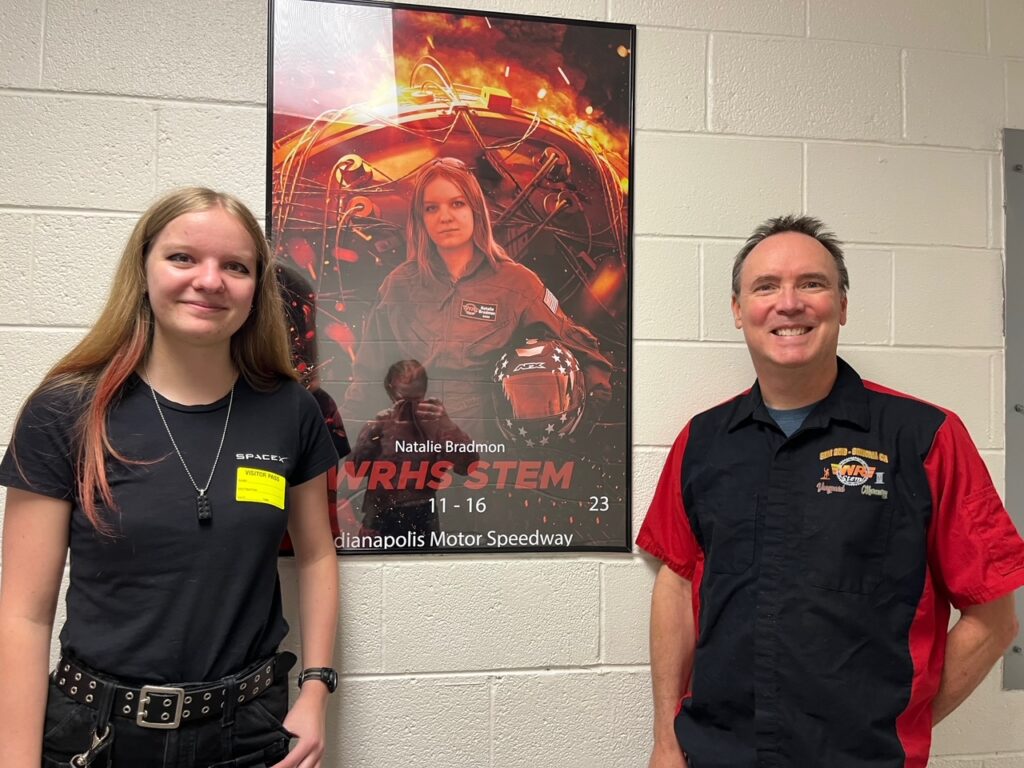
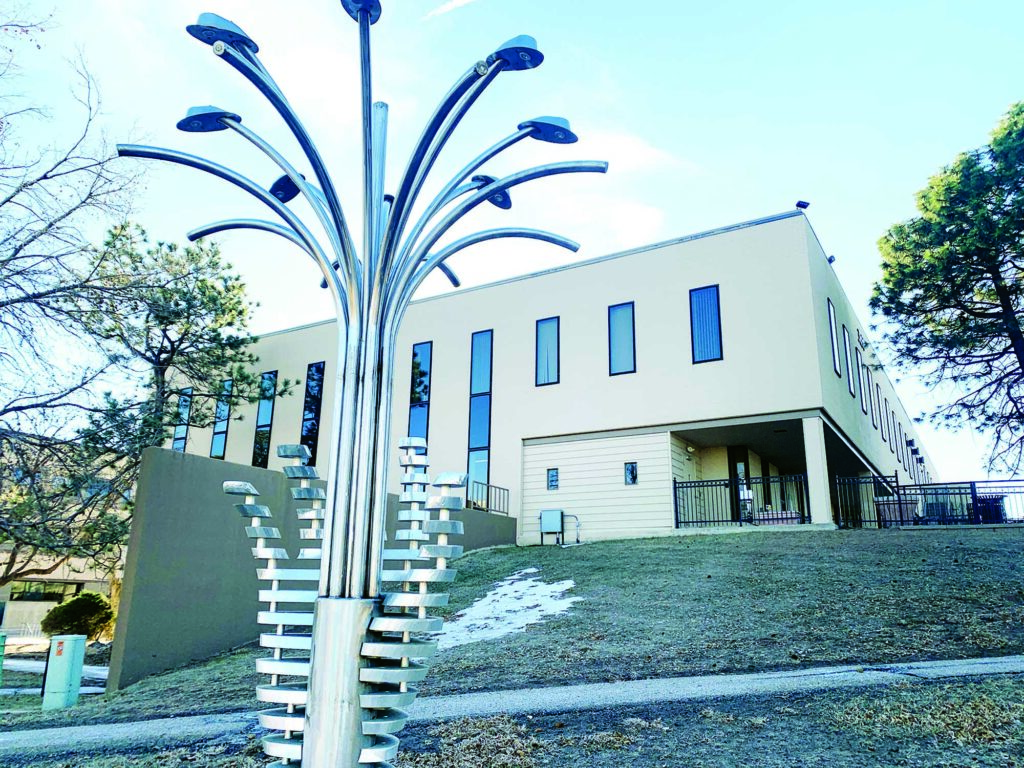
(left) CHUCK SPRAGUE ALONGSIDE NATALIE BRADMON, ONE OF THE LEAD MANUFACTURERS and drivers in 2023. She is currently at CSU on a full ride. PHOTO COURTESY OF CHUCK SPRAGUE
(right) THE WHEAT RIDGE HIGH STEAM PROGRAM CREATED AN 11-FOOT TALL, ALUMINUM sculpture to inspire families and patients getting cancer treatment at the Wheat Ridge Lutheran Hospital in 2016. The project was headed by Andy Yutzy of the Wheat Ridge High School art department. PHOTO BY ZOE JENNINGS
“We really love having Mr. Sprague here,” Bergthold said. “He’s been an amazing contribution with his generational knowledge he’s provided to the program. Being an engineer himself he really brings a lot of knowledge to the program we wouldn’t have otherwise.”
The STEM lab and makerspace, in rooms that once housed the janitor’s break room and a woodshop in the basement of the school, have updated flooring and an entryway thanks to a grant from the Gill Foundation. Mahannah expects Wheat Ridge City Council, along with other community groups, to continue their funding of the program.
“I feel very confident that the city of Wheat Ridge is going to continue that level of support because we see the contributions that they’ve made and we see the success of the program,” Mahannah said.
Sprague is looking forward to decompressing during retirement. He hopes to play tennis and tote his three year old son August to and from school and soccer practice.
Sprague appreciates business and industry professional Kevin Fornall, who has donated his time and expertise to the program for close to a decade. Sprague remembers his mom Diane Sprague attending the program’s first competition in Detroit and being a supporter ever since. He thanks his wife Ellen Sprague for her support and flexibility. Most of all he thanks his students and their families.
“You are the reason I enjoyed coming to school everyday,” Sprague said. “I will miss you all more than you can imagine. Thank you for letting me be your teacher.”

